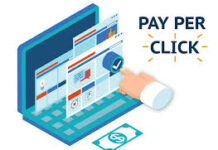5 Reasons Your Website Might Be Running Slowly
The next problem you may have to face with a slow running website is not entirely understanding what could be causing it. On the surface, your website could be everything you want out of a professional business site, but something could be causing underlying problems regarding speed.
This could be:
- Image sizes
- Plugins
- Too many advertisements
- A low-quality web hosting tool
- Overstuffed coding
How to Make Your Website Run Faster
Resize Your Images
Large and high-quality images are always a plus, but having your website load up such extensive images can seriously slow down your site. Not only that, but if you choose to upload a large image to your site and then have your website display it in a smaller format, this action can mean more pressure on your loading speed.
Instead, make your images smaller before you upload them to your websites.
Also Read: How Computer Based Test Can Make an Impact in Your Business?
Double Check Your Links
Some links can be bad and lead to error pages. Not only is this frustrating for a website user, but the wasted request could cause slow loading times for your website. Be sure always to check that any links included are correct and lead to the pages they should.
Have Your Site Designed by a Professional Agency
Web design agencies will know how best to implement every feature of your site and format it for optimal running power. The best web design agency can help you with the visuals of your site and the layout and structure to make sure that everything is always running smoothly.
Try Caching Your Web Pages
Caching means that copies of your web pages are stored, meaning that stored web pages can be delivered more easily (and therefore quickly) rather than having to spend a lot of work generating the content each time. This means that the server will need to do less to deliver your web pages.
Your website host should be able to cache your pages for you or look into plugins for caching that you can install on your website.
Also Read: 12 Ways Inventory Management Solutions are Helping Small Businesses
Manage Your Plugins
Plugins are extremely helpful for website customization, but too many of them can cause problems, including a slow loading screen. Manage your plugins to make sure that you have only the plugins you need, to make sure no unnecessary ones are clogging up your site.
Bonus tip: get into a routine of checking your website loading speed by going onto the website yourself, as a consumer would. Check across all devices to see the loading speed on smartphones, tablets, and computers to check speed is positive for all. Every time you edit to your site, recheck it to see that it’s loading in a timely way.
Also Read: 6 Reasons Businesses Should Embrace Data Analytics











